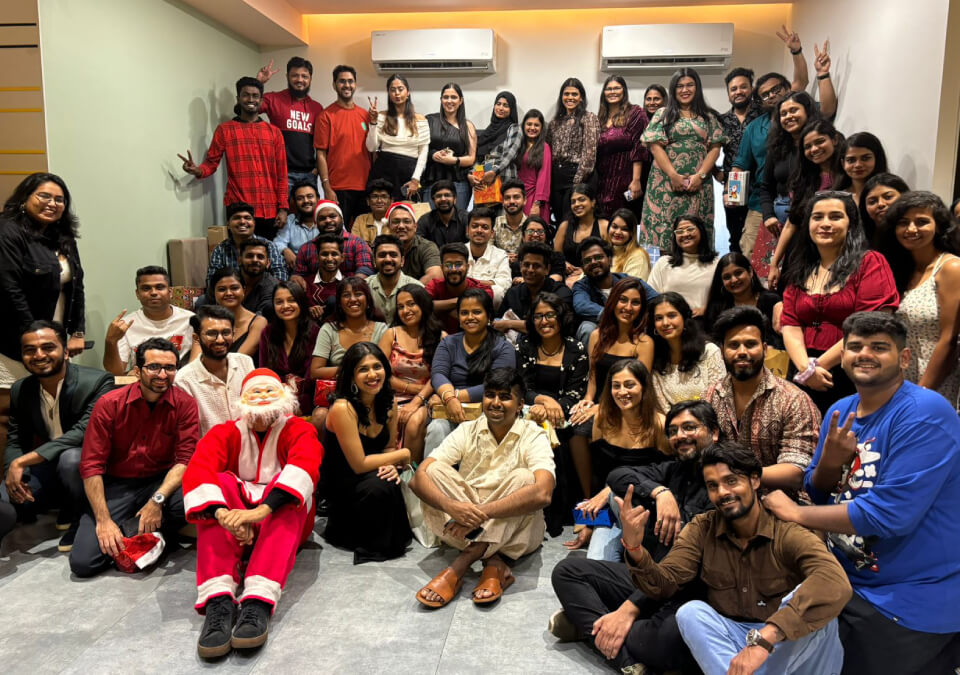Tonic Insider: Fostering a culture of inclusivity and people positivity

Categories:
Social MediaTags:
Social MediaThe conversation around inclusivity in the workplace is ever-evolving, with a spotlight on the media industry in recent years. As the world grows more conscious of the gender gap in professional spaces across industries, everyone is working towards inclusivity and responsible hiring practices. Diversity is no longer just a trend, but an important facet of every successful organization. We at Tonic Worldwide recognize this and have built a people-first workplace culture that is not just a safe environment for women but also a springboard for them to build their careers upon.
In conversation with Social Samosa, Sanjana Ramesh, the People Strategy Lead at Tonic Worldwide describes the inclusive workplace culture at Tonic across various facets of the modern media landscape.
Social Samosa: In light of the increasing interest among Indian agencies and firms to appoint more women to CXO positions this year, what strategies do you have in place for enhancing female representation in such roles?
Sanjana Ramesh: At Tonic, we follow a holistic approach towards enhancing and empowering women to CXO positions. At a leadership level, our top leadership has unequivocally committed to championing gender diversity. This commitment is regularly communicated, emphasizing the importance of creating a culture that values and supports women in leadership roles.
Additionally, we also have development programs for our female employees that are tailored to enhance their skills and capabilities. These include networking opportunities, mentorship and sponsorship initiatives which provide invaluable support for their career growth.
We’re also strong believers in equal pay and agree that the wage gap is among the main factors that needs to be addressed to achieve workplace equality. We conduct regular reviews which ensure women in similar positions as men receive equal pay and don’t have to deal with feelings of being treated differently to their male counterparts.
We have strong hybrid workplace policies in place, with regard for a healthy work-life balance especially in the lives of women and respect for their personal lives.
At the same time, we realise that the conversation around diversity and inclusion at a leadership level are constantly evolving. Addressing this, we have established key performance indicators related to gender diversity and regularly report our progress, which ensures transparency and structural growth.

Social Samosa: What is the current gender ratio in your agency, both C-level and otherwise? Additionally, could you disclose the targeted percentage of women hires you aim to accomplish?
Sanjana Ramesh: At the leadership level (excluding the founding team), our gender ratio is almost 1:1, showcasing a balanced representation. At the organizational level, 55% of our workforce comprises females, and we are committed to maintaining this gender balance at both levels throughout this year.
Social Samosa: How are you building a more secure workplace for women? Do you have any policies in place to encourage more women to join the workplace?
Sanjana Ramesh: The higher percentage of females in our workforce serves as a testament to our commitment to providing a secure workplace. Our zero-tolerance policy against any form of harassment underscores our dedication to fostering a safe environment for women. Regular POSH (Prevention of Sexual Harassment) training sessions further empower our employees with awareness and knowledge.
We’re trying to build a workplace that is not just secure but cognizant of women’s health and well-being as well. We have a dedicated menstrual leave policy in place to address this. In addition to this, we have a guaranteed departure rule wherein no employee is required to work at the office beyond 8pm with the purview of ensuring a safe and comfortable commute for our female employees. The hybrid working system further enables this.

Social Samosa: What is the current gender ratio in your agency, both C-level and otherwise? Additionally, could you disclose the targeted percentage of women hires you aim to accomplish?
Sanjana Ramesh: At the leadership level (excluding the founding team), our gender ratio is almost 1:1, showcasing a balanced representation. At the organizational level, 55% of our workforce comprises females, and we are committed to maintaining this gender balance at both levels throughout this year.
Social Samosa: How are you building a more secure workplace for women? Do you have any policies in place to encourage more women to join the workplace?
Sanjana Ramesh: The higher percentage of females in our workforce serves as a testament to our commitment to providing a secure workplace. Our zero-tolerance policy against any form of harassment underscores our dedication to fostering a safe environment for women. Regular POSH (Prevention of Sexual Harassment) training sessions further empower our employees with awareness and knowledge.
We’re trying to build a workplace that is not just secure but cognizant of women’s health and well-being as well. We have a dedicated menstrual leave policy in place to address this. In addition to this, we have a guaranteed departure rule wherein no employee is required to work at the office beyond 8pm with the purview of ensuring a safe and comfortable commute for our female employees. The hybrid working system further enables this.

Social Samosa: What are your plans for inclusive hires this year?
We want to establish a robust framework for inclusive hiring driven by key tentpoles such as Diverse Interview Panels to facilitate an interview experience driven by more diverse perspectives and diversity training for hiring teams.
Sanjana’s conversation with Social Samosa discusses at length how Tonic Worldwide has, over the years, built an inclusive workplace where women can thrive and feel empowered to showcase their talent without worrying about being overlooked. Tonic Worldwide continues to grow as long as it remains empowered. We intend to lead by example with regards to inclusivity and diversity and are committed to the cause.





